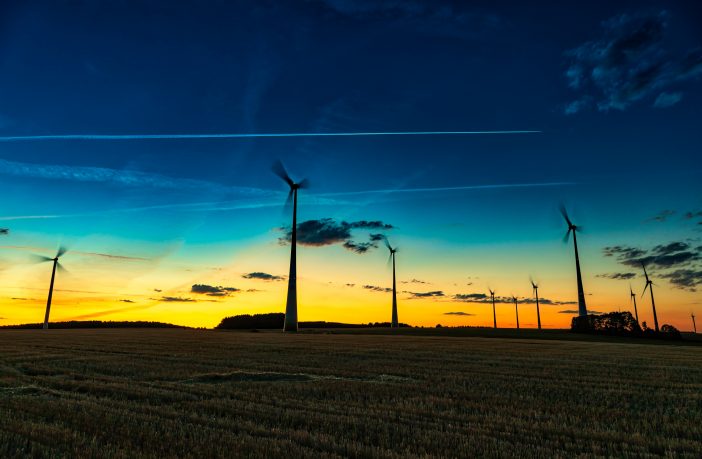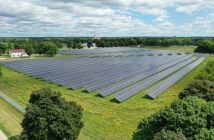Opinion
Bruce Stewart; Head: Debt Capital Market Origination and Arvana Singh; Principal: Debt Capital Market Origination, Nedbank CIB
Modern businesses increasingly recognise that their sustained success is contingent on their ability to deliver real and lasting value to the society in which they exist; and the United Nations Sustainable Development Goals (SDGs) offer a solid framework on which to design and deliver those contributions.
Developed by the UN, and agreed to by 193 counties across the world, the SDGs are essentially a blueprint for the achievement of a sustainable future for the planet and its citizens. These 17 goals have been designed to address the main global challenges, not least of which relate to climate change, poverty, inequality, employment , education, environmental degradation, water quality and access and peace and justice. The goals are highly interconnected and all have a target of 2030, which means their achievement requires the commitment and collaborative effort of as many of the world’s public and private sector organisations as possible.
However, while many companies have embraced the goals and accepted the responsibility they have to help achieve them, translating these good intentions into meaningful action is proving challenging, at best, for most organisations. Financial institutions, especially, are faced with something of a dilemma in that their primary means of contributing to the SDGs is by deliberately channelling their funding activities and finance solutions to ensure that the money with which their clients entrust them not only grows in value over time, but is also effectively applied to facilitate constructive economic, social and environmental activity that drive sustainable growth and development for the benefit of broader society.
In theory, it’s not a difficult balance to achieve. The long-term financial value and growth that can be unlocked through investment that considers and prioritises environmental, social and good governance principles (ESG) have been repeatedly proven and well documented. However, to date, the main challenge for banks and other financiers has been finding investable ESG- or sustainability-focused investment opportunities that tick all the necessary regulatory and compliance boxes and have a clear potential to deliver solid returns for investors as well as society and the environment.
For us at Nedbank, the debt capital markets present an ideal mechanism by which to bridge this gap between the desire by companies and investors to contribute to the achievement of the SDGs, and the specific investment actions that represent such a contribution. Social and environmental development bonds (most often called ‘green bonds’) are a proven way to mobilise the financial resources of capital markets and apply them directly in support of projects that address issues like climate change, energy, food and water insecurity, social and economic inequality and environmental degradation.
Small wonder then, that since 2007, when the first official green bond issued jointly by the European Investment Bank (EIB) and the World Bank captured the attention of global investors, the green bond sector has seen strong and steady growth. In 2018 alone, global green bond issues were valued at over US$167bn* as corporates, municipalities and governments alike increasingly recognised the compelling green bond value proposition.
And this value proposition is significantly bolstered in the South African context. Apart from the opportunity these capital market instruments present to raise and meaningfully deploy capital for the benefit of society and the environment, they also deliver the benefit of relative financial security for investors in what can only be described as particularly volatile economic times for the country. And when the focus of this type of impact investing is on leveraging the proceeds to add momentum to the country’s renewable energy efforts, the appeal is further enhanced.
While South Africa’s currently shaky sovereign debt position has reduced investment in many sectors to a pedestrian pace, at best, the ongoing energy crisis has created significant opportunities for renewable energy to enjoy sustained stellar growth in the coming years. Bonds with a focus on renewables therefore present local and international investors with a unique opportunity to contribute to, and benefit from, risk-managed investment into the country’s vital energy infrastructure.
And it’s this dual benefit proposition, combined with its commitment to making a tangible contribution to the achievement of the SDGs, that led Nedbank to conceive and create its Renewable Energy Bond. The first such SDG-focused capital market instrument to be delivered by a bank in South Africa capitalises on our extensive experience in the sector, which includes funding 42 of the transactions, worth R40bn, across the four rounds of the country’s Renewable Energy Independent Producer Procurement Programme (REIPPP).
The creation of the bond also demonstrates our understanding that the concept of impact investing, while still relatively new in the global investment space, is already evolving from a ‘return-first’ approach to an ‘impact-first’ requirement. As this balance continues to shift, the support by financial and investment instruments of the SDGs, along with their clear alignment with ESG principles, will become the ticket required by organisations, and particularly financial institutions, to participate in society and the global economy.
Ultimately, a sustainable society is the only way to achieve sustainable investment returns, and green bonds are a very viable way to shift funding to where it is needed most, thereby creating this symbiotic relationship between society, the planet and the economy for the benefit of all three.
The Nedbank Renewable Energy Bond auction opened on 24 April 2019.
Authors: Bruce Stewart – Head: Debt Capital Market Origination and Arvana Singh – Principal: Debt Capital Market Origination, Nedbank CIB











